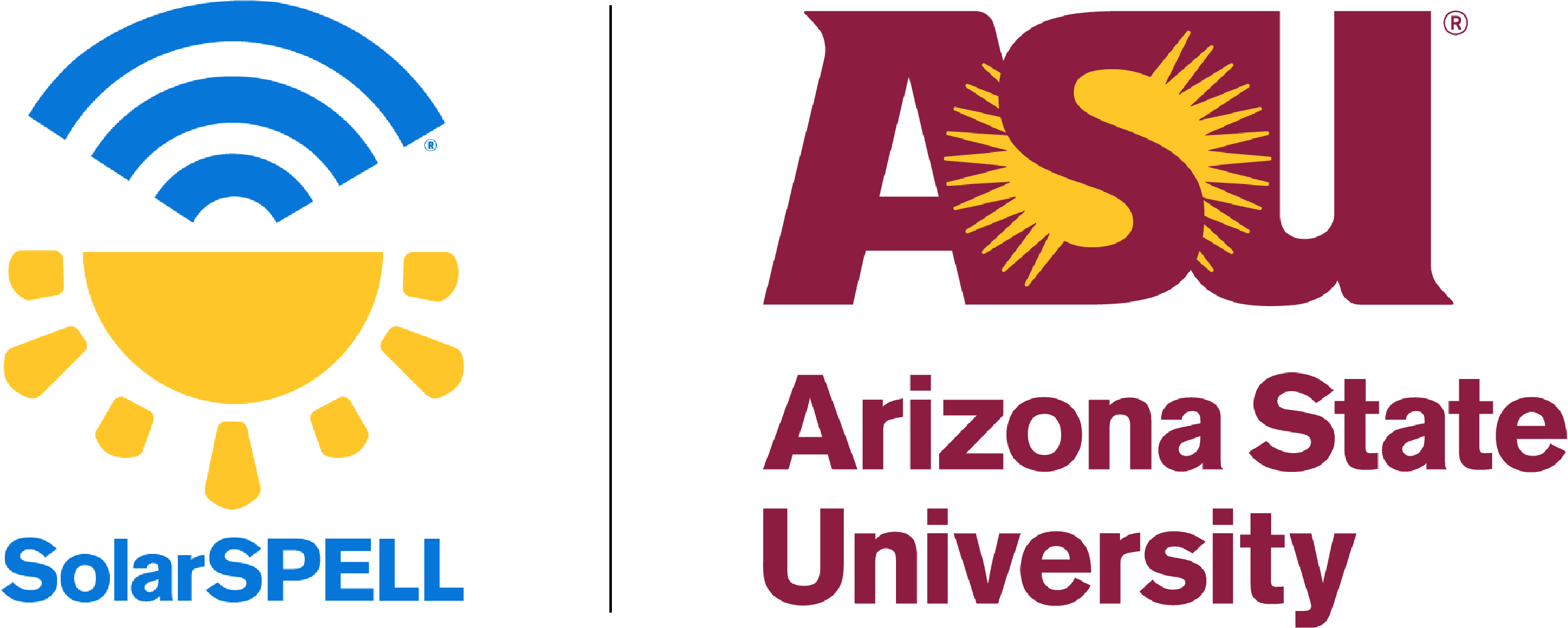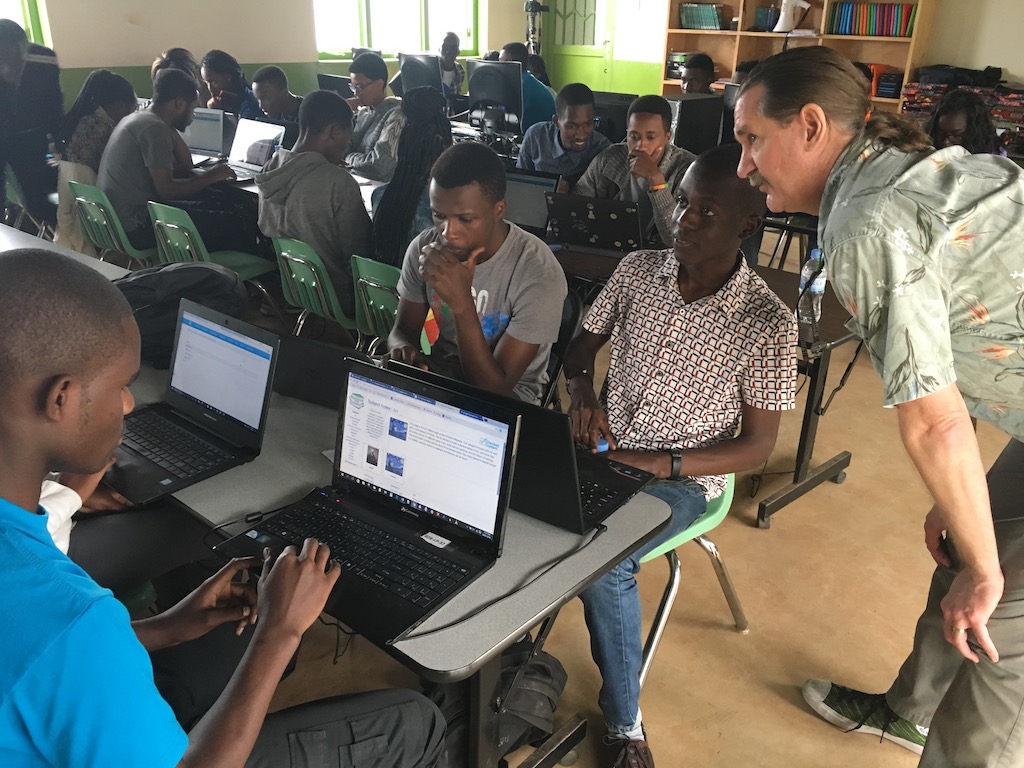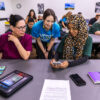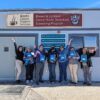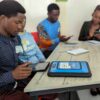Dan, an Associate Librarian at Arizona State University’s Hayden Library, joined the SolarSPELL project in fall 2017 to aid content curation for the East Africa version of the SolarSPELL Library. In January 2018, Dan traveled with the team to Rwanda. The following is a reflection on his experience:
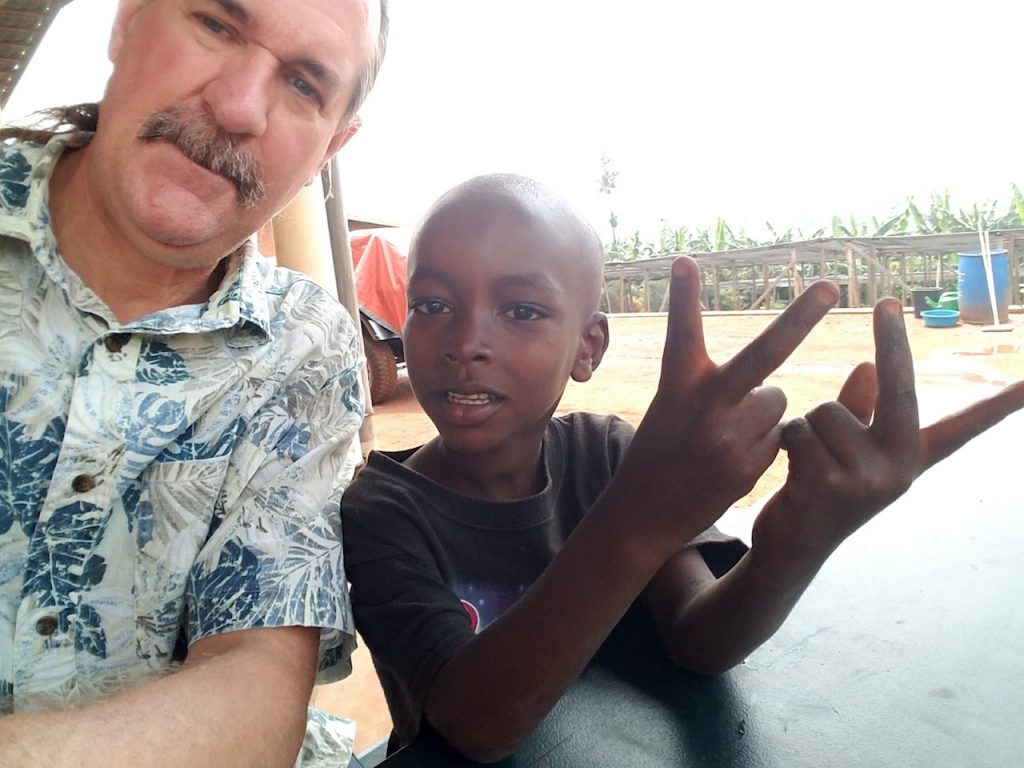 I first met Dr. Laura Hosman at the ASU School for the Future of Innovation in Society (SFIS) Mini-Retreat in August, 2017, days prior to the start of the Fall Semester. I was attending as the Librarian supporting SFIS, and Dr. Hosman was attending as a new Faculty hire, in Arizona barely four days. We sat at the same table together, introduced ourselves, and discussed the small plastic box she carried with her, the SolarSPELL – Solar Powered Educational Learning Library. As a Librarian, I was intrigued by the premise of bringing educational resources to locations with no electronic infrastructure – no power, and certainly no internet. Dr. Hosman had already proven it could work, having partnered with Peace Corps Volunteers in Micronesia and other Pacific Island nations to bring this technology to teachers in isolated communities. Another positive aspect for me. As a Returned Peace Corps Volunteer (Honduras ’86-’88), I knew the focus was on local community development, as opposed to big top-down projects that often fail due to lack of community buy-in and participation.
I first met Dr. Laura Hosman at the ASU School for the Future of Innovation in Society (SFIS) Mini-Retreat in August, 2017, days prior to the start of the Fall Semester. I was attending as the Librarian supporting SFIS, and Dr. Hosman was attending as a new Faculty hire, in Arizona barely four days. We sat at the same table together, introduced ourselves, and discussed the small plastic box she carried with her, the SolarSPELL – Solar Powered Educational Learning Library. As a Librarian, I was intrigued by the premise of bringing educational resources to locations with no electronic infrastructure – no power, and certainly no internet. Dr. Hosman had already proven it could work, having partnered with Peace Corps Volunteers in Micronesia and other Pacific Island nations to bring this technology to teachers in isolated communities. Another positive aspect for me. As a Returned Peace Corps Volunteer (Honduras ’86-’88), I knew the focus was on local community development, as opposed to big top-down projects that often fail due to lack of community buy-in and participation.
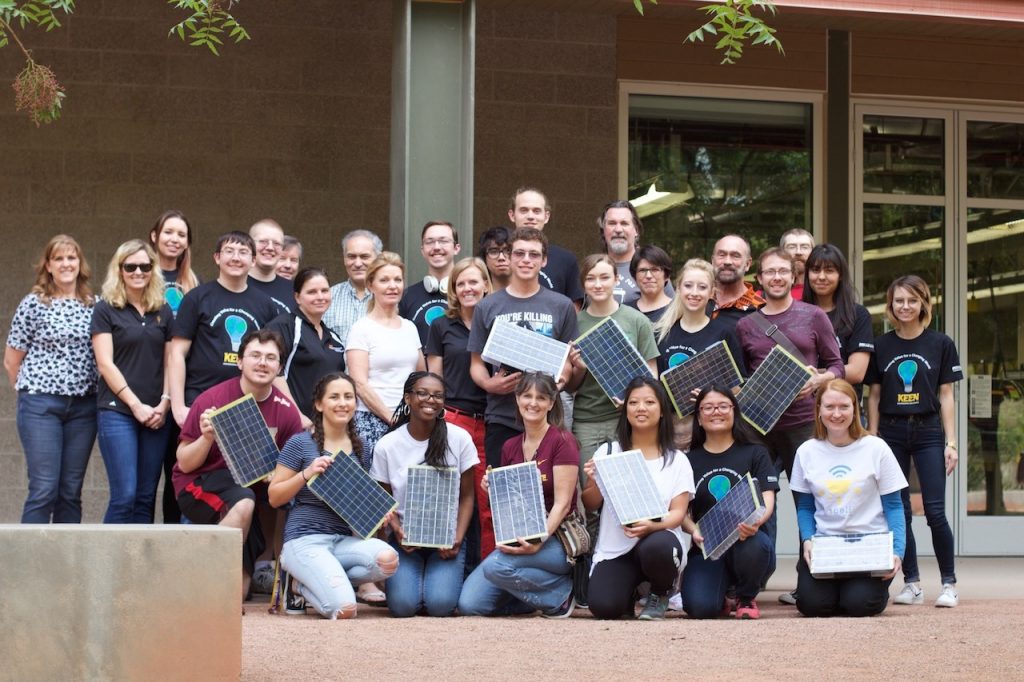 In a matter of weeks, Dr. Hosman and the SolarSPELL garnered attention at Arizona State University and beyond. The ASU Library took an interest in offering assistance in collecting and classifying information contained in the SolarSPELL (it is a ‘Library’, after all!). I was involved in the project informally, using my expertise in government information to collect quality open access resources appropriate for K-12 classrooms and teachers, and resources that reflected the reality and cultures of Pacific Island nations. And while I’m decidedly non-technical, I participated in a SolarSPELL build, contributing to the creation of the low-cost, rugged, solar-powered boxes could bring dramatic change to education in remote places.
In a matter of weeks, Dr. Hosman and the SolarSPELL garnered attention at Arizona State University and beyond. The ASU Library took an interest in offering assistance in collecting and classifying information contained in the SolarSPELL (it is a ‘Library’, after all!). I was involved in the project informally, using my expertise in government information to collect quality open access resources appropriate for K-12 classrooms and teachers, and resources that reflected the reality and cultures of Pacific Island nations. And while I’m decidedly non-technical, I participated in a SolarSPELL build, contributing to the creation of the low-cost, rugged, solar-powered boxes could bring dramatic change to education in remote places.
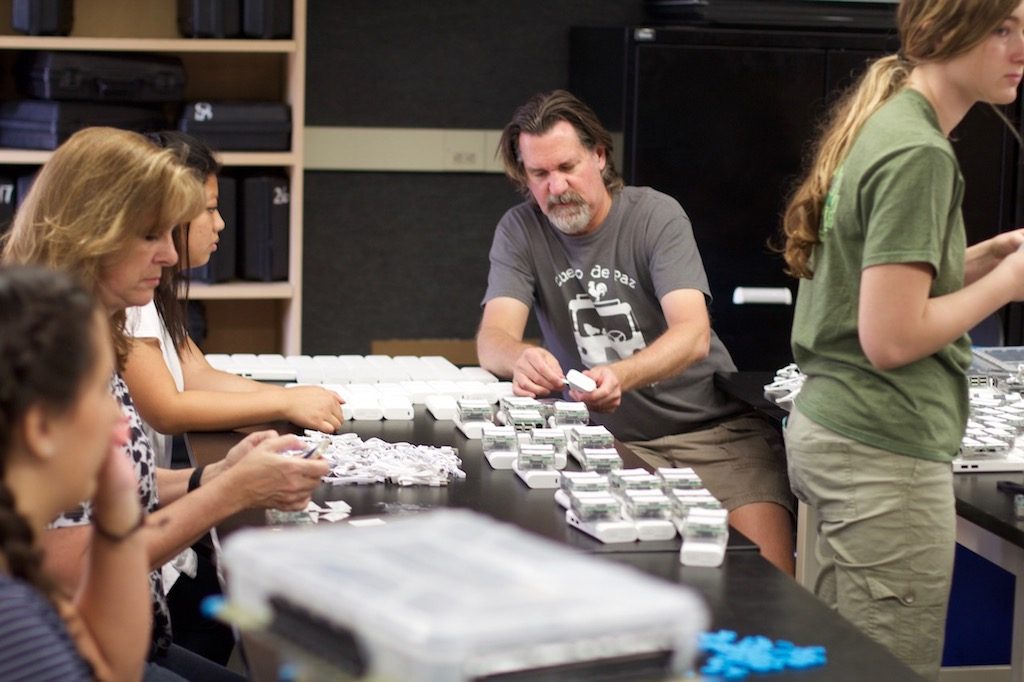 In mid-October I was asked to participate in curating content for the next phase of SolarSPELL, bringing the technology and new content to East Africa, specifically Rwanda, where Peace Corps Volunteers are in place to oversee introduction. As time went on, South Sudan was added to the mix and I was invited to travel to Rwanda to assist in introducing the SolarSPELL to teachers from South Sudan as well as Peace Corps Volunteers and (possibly) teachers in Rwanda. I would also be assisting my colleague, Dr. Lisa Kammerlocher, in providing information literacy and content curation instruction to a group of 37 Bridge2Rwanda students from Rwanda, South Sudan, Burundi, and the Democratic Republic of the Congo, participating in a gap-year program to help them prepare for university in the United States or Europe. What an exciting opportunity!
In mid-October I was asked to participate in curating content for the next phase of SolarSPELL, bringing the technology and new content to East Africa, specifically Rwanda, where Peace Corps Volunteers are in place to oversee introduction. As time went on, South Sudan was added to the mix and I was invited to travel to Rwanda to assist in introducing the SolarSPELL to teachers from South Sudan as well as Peace Corps Volunteers and (possibly) teachers in Rwanda. I would also be assisting my colleague, Dr. Lisa Kammerlocher, in providing information literacy and content curation instruction to a group of 37 Bridge2Rwanda students from Rwanda, South Sudan, Burundi, and the Democratic Republic of the Congo, participating in a gap-year program to help them prepare for university in the United States or Europe. What an exciting opportunity!
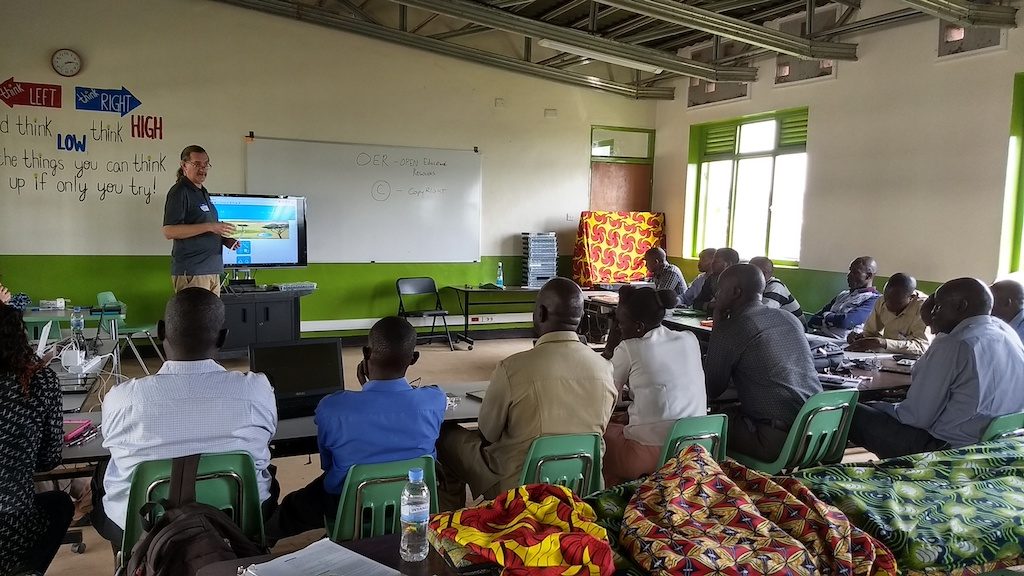 As I write this, I’ve been back in the US for less than 24 hours, and even jet lag can’t dampen my experience! Rwanda is a beautiful country and the people are delightful. During most of our stay, we were based at Hope Haven, a rural primary school outside the capital, Kigali. As students were still on break, we were able to use the facilities for our SolarSPELL sessions. I was impressed by the commitment and creativity of Hope Haven Manager, Nate Kempton, in making the school an important part of the community. Nate’s wife, Fonda Kempton, shows that same commitment and kindness in her role as Executive Director of the Bridge2Rwanda Program. They were gracious hosts, making us feel welcome and part of their communities.
As I write this, I’ve been back in the US for less than 24 hours, and even jet lag can’t dampen my experience! Rwanda is a beautiful country and the people are delightful. During most of our stay, we were based at Hope Haven, a rural primary school outside the capital, Kigali. As students were still on break, we were able to use the facilities for our SolarSPELL sessions. I was impressed by the commitment and creativity of Hope Haven Manager, Nate Kempton, in making the school an important part of the community. Nate’s wife, Fonda Kempton, shows that same commitment and kindness in her role as Executive Director of the Bridge2Rwanda Program. They were gracious hosts, making us feel welcome and part of their communities.
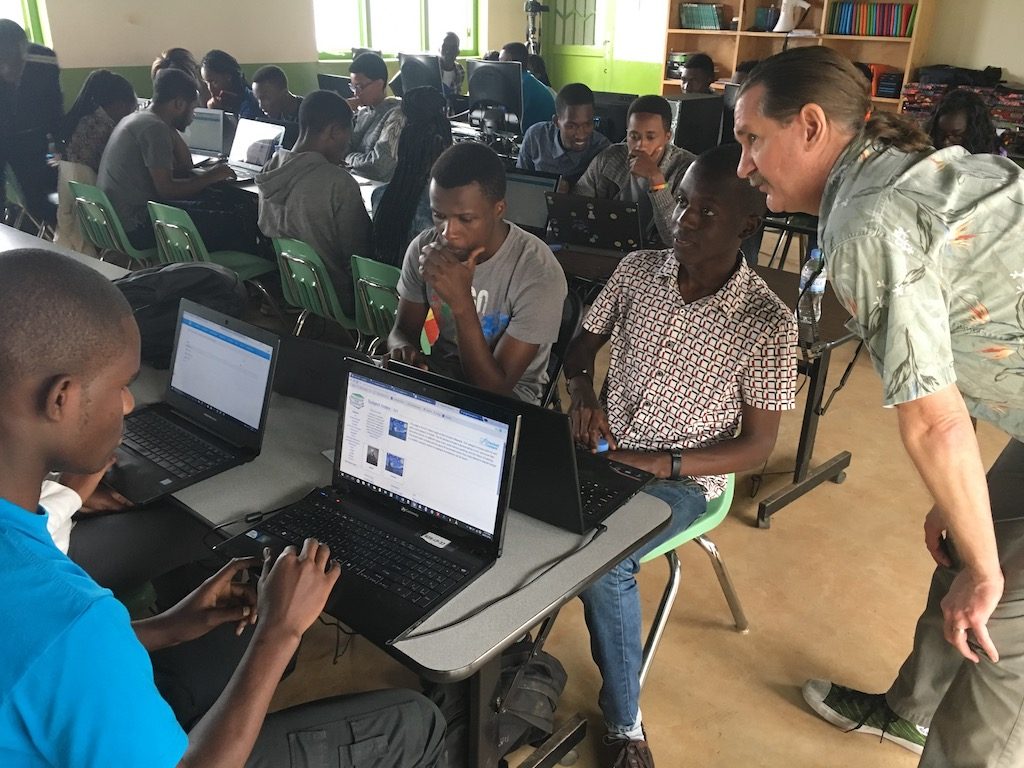 I won’t kid you, it was a lot of work! Despite the preparation, we were constantly adjusting things to maximize our time and effectiveness. The SolarSPELL Team accomplished a lot, both inside the classroom, and with outside collaborators. SolarSPELL technology, scholarly research, open educational resource evaluation and curation, internship roles and responsibilities – and more were covered by our small dedicated team. The Bridge2Rwanda Scholars were incredible, not only for the adversity many of them had faced, but for the poise and maturity they showed as they prepared to enter universities in foreign places and cultures. The experience took an even more positive, personal turn when I met a Scholar, Pierette, who will be attending my alma mater, Trinity College, in the Fall. Classes of ’86 and ’22 Represent! The South Sudan teachers and administrators demonstrated their desire to move forward, utilizing a new technology to change the way education is delivered.
I won’t kid you, it was a lot of work! Despite the preparation, we were constantly adjusting things to maximize our time and effectiveness. The SolarSPELL Team accomplished a lot, both inside the classroom, and with outside collaborators. SolarSPELL technology, scholarly research, open educational resource evaluation and curation, internship roles and responsibilities – and more were covered by our small dedicated team. The Bridge2Rwanda Scholars were incredible, not only for the adversity many of them had faced, but for the poise and maturity they showed as they prepared to enter universities in foreign places and cultures. The experience took an even more positive, personal turn when I met a Scholar, Pierette, who will be attending my alma mater, Trinity College, in the Fall. Classes of ’86 and ’22 Represent! The South Sudan teachers and administrators demonstrated their desire to move forward, utilizing a new technology to change the way education is delivered.
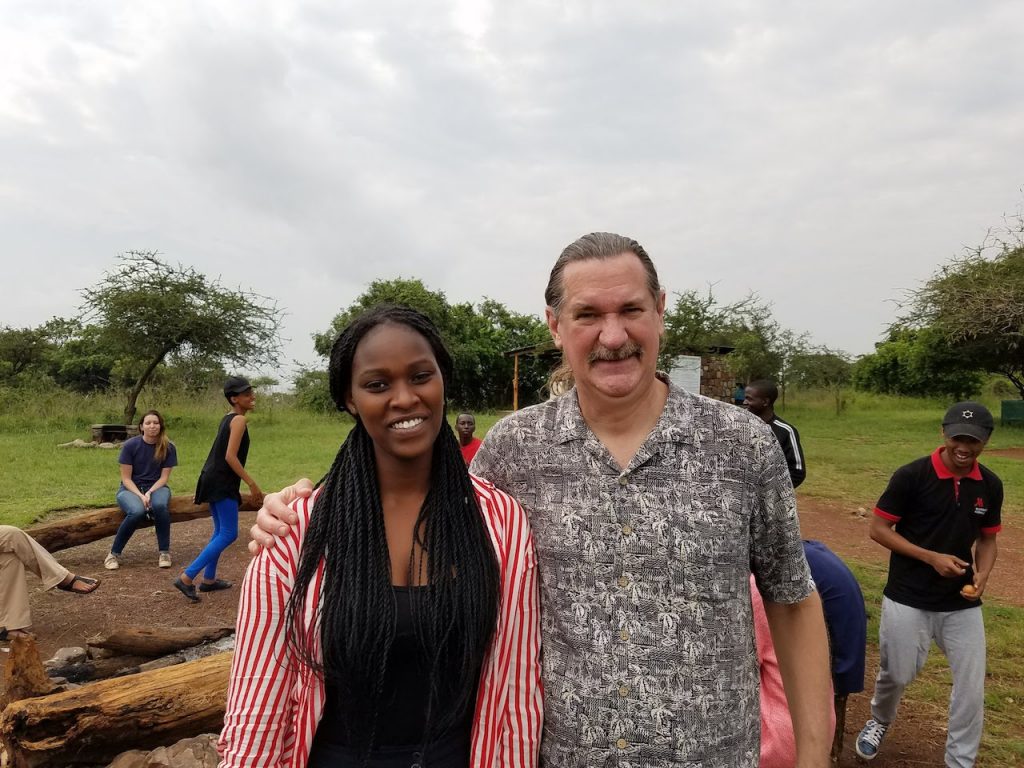
Trinity College Represent! Pierrette Ange Umwaliwase ‘22 | Dan Stanton ‘86
Prior to this trip, SolarSPELL was a cool concept – quality ‘online’ educational resources that can be used anywhere. In my role as primary collector and curator of the East African SolarSPELL, the opportunity to interact with stakeholders was invaluable. Students who had been through the educational system provided feedback on what worked, what didn’t, and what was still needed. Teachers, who would be introducing this new resource to their schools, shared their enthusiasm about the resources I had collected, confirming their value. The work continues; interaction with the primary stakeholders leads to improvements and efficiencies in the month ahead, with the next iteration being new and improved…and so on.
